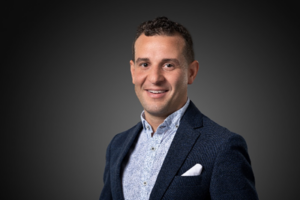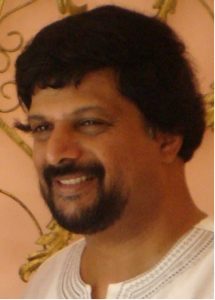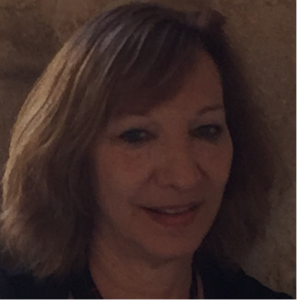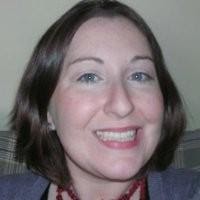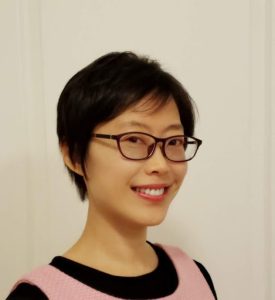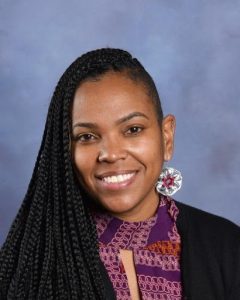Temple TESOL Speakers Series, Spring 2023
Speaker: Dr. Nelson Flores
Affiliation: University of Pennsylvania
Date and Time: February 9th, 3:30 PM (in person)
Place: Walk Auditorium, 1st floor of Ritter Hall, Temple University
Title: A Raciolinguistic Genealogy of the Self
Abstract: In this presentation I conduct a raciolinguistic genealogy of my own life as a point of entry for exploring the relationship between language and race in the post-Civil Rights era. I begin by situating my family history within broader histories of colonialism that led to my parent’s displacement from Latin America to the US where they found themselves racialized because of their use of Spanish. I then examine my raciolinguistic socialization throughout childhood that informed my relationship to both English and Spanish before shifting toward an exploration of my professional trajectory into bilingual education. I contextualize my professional trajectory within the legacy of the Bilingual Education Act (BEA). Informed by the culture of poverty, the BEA posited that bilingual education was particularly well-suited to fix the purported cultural and linguistic deficiencies of Latinx students. While informed by longstanding colonial logics, the BEA also paved the way for Latinx professionals and researchers who had to balance their desires to advocate for Latinx students with the culture of poverty discourses that made their institutional positions possible to begin with. I position myself as an inheritor of this tension and examine the ways that this has played out in my time as an ESL teacher as well as a bilingual education researcher.
Bio: Nelson Flores is an associate professor in educational linguistics at the University of Pennsylvania. His research examines the intersection of language, race, and the political economy in shaping U.S. educational policies and practices. He has been the recipient of many academic awards including a 2017 Spencer Postdoctoral Fellowship, the 2019 James Alatis Prize for Research on Language Planning and Policy in Educational Contexts and the 2022 AERA Early Career Award.
Temple TESOL Speakers Series, Fall 2022
Speaker: Dr. Suresh Canagarajah
Affiliation: Penn State University
Date: Friday, September 23rd, 3:30 PM (via zoom)
Zoom link: Forthcoming
Title: Resisting Language Norms: Teachers Learning from Students
Abstract
English language teachers assume that their job is to teach the native speaker norms to multilingual students for their success, and that there is no room for diversification of the norms if students are to become proficient in the language. However, norms don’t have to be imposed on students or treated as universal. Multilingual students bring different norms to academic contexts, and they have the capacity to renegotiate academic expectations, learn from each other, and develop shared norms. Pedagogies that encourage students to be critical and creative are important when norms are changing and are diversifying under the pressures of mobility, technology, and globalization. The strategies students adopt in their communicative and classroom activities suggest how they can renegotiate dominant norms effectively. I will illustrate from a semester-long teacher research in a course on teaching second language writing.
Bio
Suresh Canagarajah is the Edwin Erle Sparks Professor of English, Applied Linguistics, and Asian Studies at Pennsylvania State University. He teaches World Englishes, Multilingual Writing, Decolonial Studies, and Disability Rhetoric in the departments of English and Applied Linguistics. Suresh comes from the Tamil-speaking northern region of Sri Lanka. He has taught before in the University of Jaffna, Sri Lanka, and the City University of New York. Suresh was formerly the editor of the TESOL Quarterly and President of the American Association of Applied Linguistics. He currently serves in the Pennsylvania State Law Enforcement Citizen Advisory Commission, established by the governor of Pennsylvania to improve policing practices in the state. He also coordinates the “Consortium for Democratizing Academic Publishing and Knowledge” to mentor minoritized scholars worldwide into publishing.
Speaker: Dr. Margo Gottlieb
Affiliation: Co-Founder & Lead Developer for WIDA
Date: Tuesday, October 25th, 3:30 PM via zoom: https://temple.zoom.us/my/dr.swavelyzoomroom
Title: Classroom Assessment for Multilingual Learners: Challenges, Controversies, and Compromises
Abstract
Assessment for multilingual learners seems riddled with conflict where teachers are often forced to make concessions that compromise equitable instructional practice. Issues seem to constantly arise where there is theoretical and evidence-based justification for both sides, such as whether the natural fluid interaction between the shared languages of bilinguals during translanguaging should be considered a bonafide pedagogical and assessment stance or not. Teachers need to be well-informed, as answers to these questions have consequences that shape classroom policy and determine whether assessment is a gate-keeper or a door-opener for their students (Bachman, 2008). This talk addresses some of the assessment dilemmas that educators face in their role as advocates for multilingual learners and their families. It poses the duality of situations that is ever present in classrooms and offers a rationale for making sound assessment-related decisions. The overall purpose in comparing competing views is to envision how classroom assessment can become more teacher-guided (Earl, 2003) and student-driven (Berger et.al, 2014) with particular attention to multilingual learners’ languages and cultures. In contemplating responses to these challenges, pre-service and in-service teachers have opportunities to weigh strategies and select those that most correspond with their belief systems.
Bio
Margo Gottlieb, Ph.D., a teacher, teacher educator, and scholar, has been a staunch advocate for multilingual learners throughout her professional career. In that capacity, she has helped design language development standards frameworks, co-constructed linguistically and culturally sustainable curriculum, and reconceptualized classroom assessment policy and practice. Co-founder and lead developer of WIDA at the Wisconsin Center for Education Research, University of Wisconsin-Madison, Margo has been a Fulbright scholar, served on national advisory boards, and has keynoted, presented, and consulted in over 21 countries and across the U.S. She has authored, co-authored, or co-edited over 100 publications, including 30 books and guides. Her most recent books include Assessment in Multiple Languages: A Handbook for School and District Leaders and its companion, Classroom Assessment in Multiple Languages: A Handbook for Teachers (Corwin, 2022, 2021). She is currently working on the 3rd edition of her assessment best-seller.
Speaker: Dr. Santoi Wagner
Affiliation: University of Pennsylvania
Date: Monday, November 14th at 3:30 PM Room TBA
Zoom link: Forthcoming
Title: Understanding Teacher-Mentor Interactions in Post-Observation Meetings
Abstract
A mechanism often employed for teachers’ professional development is the classroom observation and subsequent post-observation meeting. The post-observation meeting provides an opportunity for teachers to engage in reflective practice (Schön, 1983) by allowing them to critically analyze their beliefs, consider alternative perspectives, and take responsibility for their pedagogical decisions (Farrell, 2018). However, reflection is not only a cognitive process; in the context of the post-observation meeting it is also a collaborative process that unfolds through interaction. The observer or mentor plays an important role in facilitating reflective practice. A mentor can aid the teacher to explicate their thinking for professional learning, and can act as a personal support to help them cope with the emotional aspects of teaching (Malderez & Bodoczky, 1999). Unsurprisingly, post-observation meetings can be fraught with challenges for both parties. For example, teachers and mentors must navigate the complexities of identity and face threat (Vásquez, 2007, 2009), norms of feedback and expected talk (Copland, 2010, 2012), and the challenges of giving and receiving critiques (Wajnryb, 1994, 1998; Waring, 2017).
In this talk, I will show how deploying the micro-analytic lens of Conversation Analysis (Sacks, 1984) can illuminate the situated interactional practices of post-observation meetings. Rather than making claims about participants’ thoughts or intentions, Conversation Analysis grounds its findings in publicly observable practices, and focuses on how participants build shared understandings and accomplish particular social actions in a visible way. I will focus on two interactional phenomena: firstly how teacher complaints are managed within the post-observation meeting and the potential for them to be exploited for reflective practice; and secondly how mentors empathize with teacher troubles-telling to provide both professional and emotional support. I hope to show that a deeper understanding of the interaction that takes place will ultimately benefit both parties.
Bio
Santoi Wagner (Ed.D., Applied Linguistics, Columbia University) is a Senior Lecturer in Educational Linguistics, and Associate Director of TESOL at the Graduate School of Education at the University of Pennsylvania. Her scholarly interests are in applying Conversation Analysis to issues within language education. Her current projects include examining the nature of teacher-mentor interactions in post-observation meetings and the development and use of authentic materials for second language teaching. She has recently published in Language Learning, Journal of Pragmatics, and ELT Journal.
Thursday, February 17th, 3:30 pm – 5:30 pm via Zoom: https://temple.zoom.us/my/dr.swavelyzoomroom
Megan Dungan, Austin Meehan Middle School; Cordelia Kao, Spruance Elementary School; Sonya Salandy, Northeast High School
Title: Perspectives From the Field: The Professional Life of an ESL Teache
Abstract:
ESL Teachers in the School District of Philadelphia support a large and increasing population of approximately 18,000 multilingual learners who come from more than 130 countries and who speak more than 100 languages (Office of Multilingual Curriculum and Programs). These teachers serve as fierce advocates for their students, as professional development leaders, and sometimes as untapped resources for crucial information about some of our most talented yet vulnerable students. Although school faculty and staff typically know WHO the ESL teachers are in their schools, far fewer know exactly what an ESL teacher DOES on a day-to-day basis. Moreover, many pre-service teachers who are considering pursuing ESL teaching as a career do not have a clear sense of the responsibilities, joys, and challenges associated with this role. This three-person panel of School District of Philadelphia ESL teachers will provide personal yet professional accounts of their work in our local schools. Questions such as the following will be explored: What is the nature of the specialized knowledge and skills these teachers possess? What kind of supports do these teachers provide to multilingual students? What are their contributions to their schools, at large? Through this panel of ESL teachers representing elementary, middle, and secondary grades, attendees will learn about their daily activities and responsibilities and the myriad ways they serve as resources to their students as well as to other teachers and administrators.
Panelists:
Megan Dungan is an ESL teacher and program coordinator at Austin Meehan Middle School. A teacher for 10 years, Ms. Dungan has always specialized in middle grades education and program coordination for multilingual learners. She taught in Maryland before coming to the School District of Philadelphia. Originally graduating with a B.A. in English from LaSalle University, Ms. Dungan returned to school to earn her M.Ed. and teaching certification at Holy Family University.
Cordelia Kao is the School-Based Teacher Leader/ESOL Coordinator at Spruance Elementary School. Her teaching career spans seventeen years and ranges from early childhood to adult education, with fifteen of those years in the School District of Philadelphia. Ms. Kao earned her undergraduate degree and teaching certification in Elementary Education from Eastern University. She graduated from the University of Pennsylvania with a Master of Science degree in Education, specializing in TESOL.
Sonya Salandy has been a teacher at Northeast High school for the past eight years, although she has been teaching in the School District of Philadelphia for seventeen years in total. She currently serves as Coordinator of Northeast’s Academic Language Program (Small Learning Community). She is the proud product of the School District of Philadelphia and of Temple University where she earned her undergraduate degree and certification in elementary education. She also has an MBA in Management from Eastern University and a second master’s degree and certification in Educational Leadership from Arcadia University. She obtained her ESL Certificate from Penn State University.
